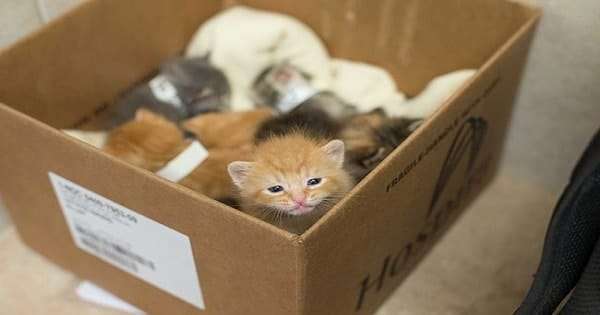Cat poo may actually play an unexpected role in the fight to cure ovarian cancer, a study has found.
A parasite, which is found in the pet feces, could be the next weapon used on tumours.
Called Toxoplasma gondii, the parasite is found in cat poo and contaminated meat.
It is only a risk to the unborn children of pregnant women and people who have a weakened immune system.
Today, US scientists have found the specific proteins secreted by the parasite which causes the immune system in mice to attack established ovarian tumours.
The process works by exploiting the parasite’s intent not to kill off its host while ensuring its own survival.
One promising strategy in the fight against cancer is to utilize a body’s own immune system to remove tumour cells.
But due to a phenomenon called immune tolerance, the immune system has a hard time identifying which cells to attack.
In the new study put out by Geisel School of Medicine at Dartmouth in Hanover, New Hampshire, scientists have built upon previous discoveries that a safe, non-reproducing vaccine strain of T. gondii may just cure mice of several types of solid tumours.
It has also Identified which parasite proteins and which immunological pathways are required to break immune tolerance.
Scientists then “systematically deleted genes for secreted effector proteins, molecules that the parasite injects into a host cell to modulate the immune system during infection, and injected the altered parasites into mice with aggressive ovarian cancer”.
Their results demonstrate well that the specific proteins that T. gondii secretes before and after host cell invasion, respectively, control the development of an effective host antitumour response, and increase the survival of mice with ovarian tumours.
Using infectious organisms to break tumour immune tolerance is a novel idea and may be the key in treating cancer in the future.
Scientists are also now exploring the bacterium Listeria monocytogenes to break the immune tolerance of pancreatic tumours
Professor of Microbiology and Immunology Dr David Bzik stated: “Our results demonstrate that specialised effector proteins secreted by T. gondii both before and after host cell invasion trigger and coordinately control the development of a potent antitumour response.
“Consequently, tracking and understanding the host cell pathways manipulated by these T. gondii secreted effector proteins can reveal fundamental mechanisms controlling immunity to infection and can also identify relevant mammalian cell mechanisms as new targets for devising more effective therapies against highly aggressive solid tumours.”
The study has been published in PLOS Genetics.










